Filter by
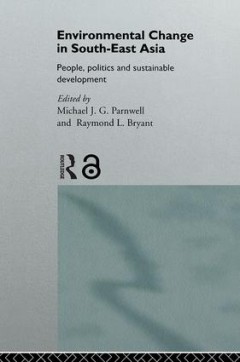
Environmental change in South-East Asia : people, politics and sustainable de…
Environmental Change in South-East Asia brings together scholars, journalists, consultants and NGO activists to explore the interaction of people, politics and ecology. Ostensibly "green" activities - plantation forestry, eco-tourism, hydro-electricity - are revealed as guises used by elites to promote their own political and economic interests. Highlighting fatal flaws in presently exclusiv…
- Edition
- -
- ISBN/ISSN
- 9780203983003
- Collation
- xv, 375p. : ill.
- Series Title
- -
- Call Number
- 333.70959 ENV e

Reconsidering cultural heritage in East Asia
The concept of ‘cultural heritage’ has acquired increasing currency in culture, politics and societies in East Asia. However, in spite of a number of research projects in this field, our understanding of how the past and its material expressions have been perceived, conceptualised and experienced in this part of the world, and how these views affect contemporary local practices and notions …
- Edition
- -
- ISBN/ISSN
- 9781909188891
- Collation
- X, 161 p.
- Series Title
- -
- Call Number
- 306.095 ELE r
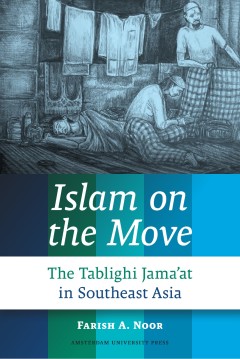
Islam on the move : the Tablighi Jama'at in Southeast Asia
Much nuance and variability have been lost in the process of the reductivist analysis of Islam post 9/11 and, as this study amply demonstrates, we are all the poorer as a result. This exhaustive examination of the rise and spread of the Tablighi Jama't, arguably the world's largest Islamic missionary movement, locates it in the larger perspective of global Islam and developments in the Muslim s…
- Edition
- -
- ISBN/ISSN
- 9789089644398
- Collation
- 255p. : ill.
- Series Title
- -
- Call Number
- 297.0959 NOO i
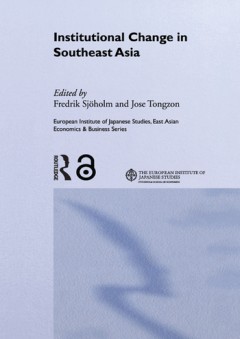
Institutional change in Southeast Asia
This book examines the institutional changes taking place in, and challenges facing, the region since 1997. It also describes various differences in the reform process between countries in the region. Sjöholm and Tongzon argue that the economies of southeast Asia need to reform their institutions if the previous rapid development is to continue. The institutional weaknesses have been addressed…
- Edition
- -
- ISBN/ISSN
- 9780203694633
- Collation
- xv, 206p. : ill.
- Series Title
- -
- Call Number
- 330.959 INS
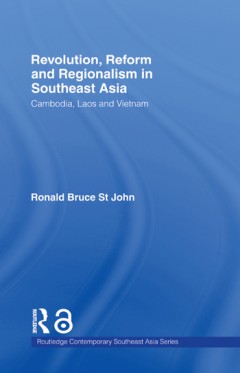
Revolution, reform and regionalism in Southeast Asia : Cambodia, Laos and Vie…
Based on research carried out over the three decades, this book compares the post-war political economies of Cambodia, Laos and Vietnam in the context of their individual and collective impact on contemporary efforts at regional integration. The author highlights the different paths to reform taken by the three neighbours and the effect this has had on regional plans for economic development th…
- Edition
- -
- ISBN/ISSN
- 9780203099476
- Collation
- xiii, 282p. : ill.
- Series Title
- -
- Call Number
- 959.051 ST r
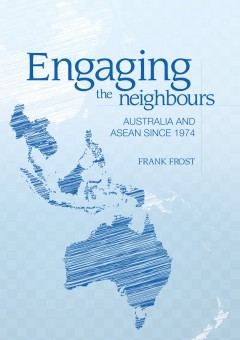
Engaging the neighbours : Australia and ASEAN since 1974
From modest beginnings in 1967, the Association of Southeast Asian Nations (ASEAN) has become the premier regional institution in Southeast Asia. The 10 members are pursuing cooperation to develop the ‘ASEAN Community’ and also sponsor wider dialogues that involve the major powers. Australia has been interested in ASEAN since its inauguration and was the first country to establish a multila…
- Edition
- -
- ISBN/ISSN
- 9781760460181
- Collation
- xiv, 258p. : ill.
- Series Title
- -
- Call Number
- 327.94059 FRO e
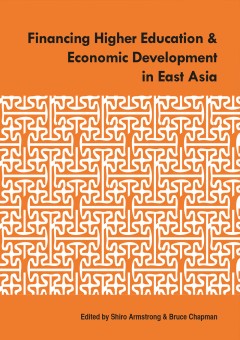
Financing higher education and economic development in East Asia
This volume addresses important issues to do with access to higher education and different models of its financing in the East Asia region. It is enriched by diverse perspectives from vastly different starting points and by the historical and institutional settings in the region. The issues are set out in the context of the value of higher education in economic development and how it contribute…
- Edition
- -
- ISBN/ISSN
- 9781921666636
- Collation
- viii, 281p. : ill.
- Series Title
- -
- Call Number
- 379.1214 FIN f
 Computer Science, Information & General Works
Computer Science, Information & General Works  Philosophy & Psychology
Philosophy & Psychology  Religion
Religion  Social Sciences
Social Sciences  Language
Language  Pure Science
Pure Science  Applied Sciences
Applied Sciences  Art & Recreation
Art & Recreation  Literature
Literature  History & Geography
History & Geography